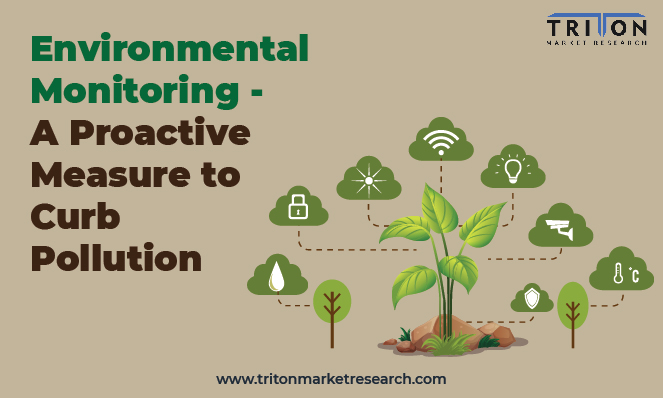



28, December 2021

With the worldwide growth in economies and populations, environmental pollution has been spiraling over the years. Today, it has become a matter of mounting concern that is largely impacting biodiversity and ecosystems, as well as human health. Long-term health effects from air pollution include lung cancer, heart disease, and several respiratory diseases. According to data from the World Health Organization (WHO), air pollution kills nearly 7 million people globally, every year.
Whereas, at least 2 billion people drink water obtained from contaminated sources, leading to thousands of deaths every year. Industrial activity is largely responsible for these outcomes, as it degrades the quality of air, water, and soil, with emissions, effluents, and improper waste disposal.
Environmental monitoring has thus emerged as an effective solution to tackle this problem – it minimizes the impact of an organization’s activities on an environment, thereby protecting public health. It involves processes to identify & analyze the effects of various activities on the environment and regulate pollution levels.
According to Triton, the global market for environmental monitoring is expected to augment at a CAGR of 8.03% in the forecasting years from 2021 to 2028.
Many countries and communities across the globe have thus begun to adopt favorable practices to meet a diverse range of environmental objectives, including resilience to climate change and the implementation of green infrastructure solutions.
The United States’ Environmental Protection Agency (EPA) has identified green infrastructure as a significant factor contributing to improved air quality & human health, reduced energy demand, capital cost savings, and enhanced carbon storage. For instance, Philadelphia has implemented policies throughout the city since 2006, promoting sustainable infrastructure in planning and development.
In addition, several European nations are also supporting clean initiatives to reduce greenhouse gas emissions, in accordance with the Paris Agreement adopted in 2015. Germany has formulated a series of laws and energy reforms under its ‘Energiewende’ plan to strengthen its fight against pollution. Also, the national government has provided funds worth approx. $2.34 billion to cities and towns to combat air pollution.
In May 2019, it introduced the National Air Pollution Control Programme, mandating reduction in vehicular emissions by 2030. In addition, it also implemented 58 low-emission zones in more than 70 cities, majorly reducing the number of older, pollution-causing vehicles.
Meanwhile, the government of Taiwan approved the Air Pollution Control Act in August 2018, to raise the adoption of environmental monitoring systems. In February 2020, South Korea successfully launched Cheonrian 2B, which is an environmental satellite incorporated with a sensor to track pollutants.
Continuous efforts for research and innovation are leading the market towards growth, with companies focusing on expanding their product portfolio to cater to end-users globally. For instance, Oxford Molecular Biosensors Ltd, a UK-based startup, develops bacterial biosensors for detecting and measuring pollution levels, on-site and in real-time.
Whereas, Honeywell International Inc launched its gas cloud imaging system in April 2021, which provides continuous, automated monitoring for leaks caused by dangerous and polluting gases like methane at power generation, oil & gas, chemical facilities.
The Shimadzu Group has developed 125 Eco-Products Plus models to minimize the adverse impacts on the environment. In FY 2019, these models decreased CO2 emissions generated by nearly 45,000 tons – more than the overall carbon dioxide emissions by the entire Shimadzu Group. Product developments, encouraged by R&D, heavy investments, and favorable policies, present an overall positive outlook for the studied market.

Prevalent cases of terrorist attacks in today’s world is increasing the need for severe standards of security for public safety, and the global market for biometric technology scrupulously accommoda..
Prevalent cases of terrorist attacks in today’s world is increasing the need for..